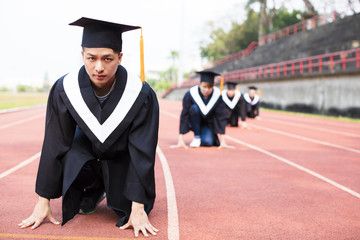The Mounting Crisis of Graduate Sports Assistants.

In a previous era, 18 year old school leavers, usually from the southern hemisphere, provided a source of unskilled, cheap labour to the sports departments of schools. This was never especially satisfactory, but the contribution of classroom teachers to games coaching in those days generally meant that there wasn’t a shortage of staff. A limited programme, based on compulsory team games, required a smaller coaching force - and a more limited skill set.
Incrementally, many schools started to replace their gap year ‘students’ with a better qualified, older and more experienced constituency of sports help. These were university leavers, some trying out school life before considering teacher training, others in need of some sort of job after three aimless, if blissful, years in higher education. The model suited all parties. Schools provided a salary which, although modest, was an improvement on student debt. Accommodation in boarding houses could be austere, but compared well with student slums.
Initially this was a peripheral workforce. It has, however, emerged as one on which schools have come to depend. The best graduate assistants were lively sportspeople, generous with time and energy, who contributed to sports coaching and boarding duties. Many schools had one, possibly even two, who worked alongside experienced teachers and coaches.
The shift (downwards) in willingness of classroom teachers to contribute to games, especially at weekends, has created a vacuum of capacity into which graduate assistants have expanded. From being the exception in schools, they have become the rule - and from being marginal to the programme, they have become central. Schools which never had them have begun to see this as a solution to the growing manpower issue: others who had one or two have expanded their requirements towards double figures.
This has created a number of unintended consequences for the sector. The first is the adjustment of the supply and demand dynamic. Previously assured of constant interest from suitable candidates, schools could meet their requirements comfortably, and at modest cost. Students were grateful for the job. However, it is estimated that demand has increased five-fold in the last few years, resulting in difficulty finding both quantity and quality of applicants. Inevitably pay and conditions have improved as competition between schools intensifies.
Schools have also needed to be more creative about their search. From an era when an advert sent to a local university was enough to guarantee a queue down the street, more inventive routes to market have been required. The recruitment season now begins earlier and lasts longer.
The second challenge has been one of housetraining. When graduate assistants were singular, working alongside experienced staff, training in expectations was informal and rapid. As this workforce increases in number and significance, more robust, formal and extensive induction processes are required. This support has not always been well done, and has lagged behind the emergence of the industry. In some schools, graduates receive little education in coaching or team management: some are sent away with teams on the first Saturday in September, with little more than basic safeguarding training. With this workforce now well-established, better preparation for the demands of the role is an emerging priority
From being a marginal dimension of school sport, the graduate assistant is becoming central to provision and something that many schools have come to depend upon. This will, therefore, inevitably require more robust processes for both recruitment and training if it is to become sustainable. Schools must be wary of relying unduly upon inexperienced and unqualified staff with a rapid turnover, if the quality of provision is not to decline. There is a danger that cheap labour will be reflected in a reduced standard. A more proactive approach will be necessary to prevent that.
Independent Coach Education has created a new service to support the recruitment of graduate sports assistants. Jobsinsport.online allows schools to advertise these vacancies to a database of more than 2000 current undergraduates who are members of university sports clubs. Lists of vacancies are circulated weekly. Advertisements can be placed on the website, and PADSIS members can do so at discounted rates